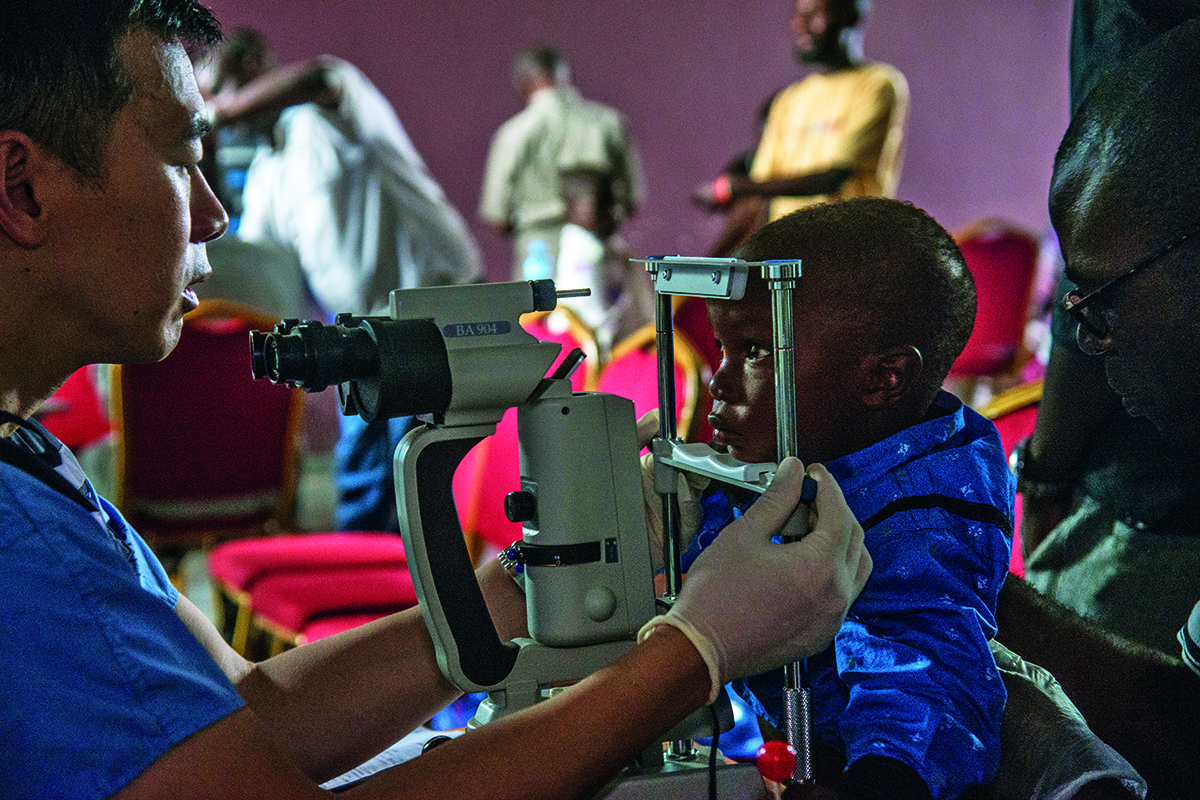A Secondary Threat to Ebola Virus Survivors: Vision Loss

After successfully treating Ebola virus disease in patients who became ill during the 2014-2016 Ebola outbreak in West Africa, Emory physicians realized that some of the survivors were developing eye diseases after recovering.
The Emory Eye Center has been awarded a $3.2 million grant from the National Eye Institute to further study vision-related issues in Ebola survivors. The team’s research focuses on the prevalence and treatment of uveitis—an inflammatory disease that can lead to vision loss or blindness in up to 40% of affected patients if left untreated. “This will allow our team to evaluate eye disease in Ebola survivors in West Africa, as well as the mechanisms that underlie its development,” says physician Steven Yeh, M. Louise Simpson Associate Professor of Ophthalmology. Investigators from the Emory Eye Center, Emory Vaccine Center, and Rollins School of Public Health will collaborate on the five-year project. Researchers from the U.S. Army Medical Reserve Institute of Infectious Diseases, Tulane University School of Public Health, and Kenema Government Hospital will collaborate on laboratory diagnostic investigations. Yeh and co-investigator Jessica Shantha, Emory assistant professor of ophthalmology, have worked with Matthew Vandy, of the Lowell and Ruth Gess Eye Hospital in Freetown, and other colleagues in Africa since first traveling to Sierra Leone in 2015. Their work has been expanded to the current ongoing outbreak in Democratic Republic of Congo with ophthalmologist Jean-Claude Mwanza of the University of North Carolina. “Eye care is only one issue among many important issues in Ebola survivors,” Shantha says. “However, prior studies have shown that survivors often develop ocular complications, such as uveitis and cataracts. This will allow us to better understand how to treat them.” Specially designed ophthalmic procedure rooms were used in Sierra Leone to safely test patients before surgery. “Because Ebola virus might remain in a patient’s ocular fluid, we want to ensure that we’re doing everything possible to protect the patient and their health provider,” Yeh says.
Related
- "Hidden From Sight" (July 2019)
- "Five Years After Ebola" (July 2019)
- "Restoring vision and hope to refugees" (Jan. 2019)





